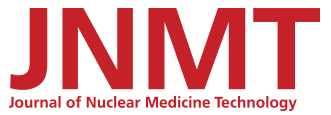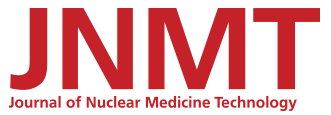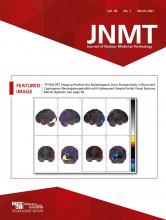Tina Buehner, PhD, CNMT, FSNMMI-TS
The past year has been truly historic. The COVID-19 pandemic shut down most of the world and continues to cripple the United States. The fight for racial equality and the need for understanding, inclusion, and unity around the world has never been more poignant for me than it has been during the last 10 months. I have found myself reflecting—often—on the nation, my city (Chicago), myself, and my position as president of the SNMMI-TS. The vision and goals of the Section have shifted as we have worked to try to assist our members by providing the resources and support they need to get through some of the most challenging times we have faced over the past several decades.
Through the efforts of the COVID-19 Task Force, we have deployed a series of COVID surveys to measure the impact of COVID-19 on the educational, institutional, governmental, and corporate areas. The survey was originally deployed in September 2020, with another in January 2021 and a final planned for April 2021.
The data from the first survey showcased the need for more support regarding VQ scans and workable alternatives to keep technologists safe. The SNMMI responded by distributing recommendations on limiting the ventilation portion of the VQ study to non-COVID-positive patients only. In addition, to try to assist even further, the SNMMI submitted a letter to the FDA supporting the fast-track approval of Technegas, which provides an alternative to radioactive xenon and radioactive aerosolized particles.
Additional comments from the survey indicated that technologists are facing extreme burnout and mental health concerns. The SNMMI-TS worked to develop 2 mental health webinars featuring mental health professionals who provided ideas for coping with stress and burnout.
The survey also highlighted that many technologists need continuing education (CE) credits to comply with state licensure and national certification requirements. The SNMMI once again responded in a big way and developed more than 80 FREE CE courses last year alone—in addition to the 2020 SNMMI Annual Meeting educational sessions that are also available FREE to members. The Technologist Program Committee, chaired by Kathy Krisak, has also developed a Technologist Winter Program to follow the SNMMI Mid-Winter Meeting. The program can be purchased in conjunction with or separately from the Mid-Winter Meeting and is approved for 7 CE credits.
Finally, with the FDA Emergency Approval of the first vaccine in December, the SNMMI-TS, American Society of Radiologic Technologists (ASRT) and Society of Diagnostic Medical Sonography (SDMS) sent a letter to state public health officials to ensure that all radiologic technologists, radiation therapists, nuclear medicine technologists, and sonographers are included in their states’ COVID vaccination plan as part of the ACIP’s Phase 1a health care personnel.
Although national advocacy efforts have focused on the 2021 Appropriations Act, supplements to physician reimbursement, and providing COVID-19 relief, grassroots advocacy often focuses on issues concerning a specific community and can include meetings with legislators and their staff, letter-writing campaigns, and phone calls to federal and local offices. This is why our state Technologist Advocacy Group representatives are vital to the success of legislative, licensure, and scope of practice issues at the state level. As the states begin their new legislative sessions, there is no doubt that COVID-19 will continue to impact our licensure efforts. Regardless, we are pushing forward with our sister societies (i.e., ASRT, ARRT) wherever we can.
By the time this article is published, we will be about 2 months post-inauguration; however, I would be remiss if I did not acknowledge that the United States had a significant milestone in January: Kamala Harris became the first woman vice president, as well as the first Black American and first person of South Asian descent. This monumental moment for the United States is one that the SNMMI-TS first celebrated in 1978 when the late Susan C. Weiss was elected as the first woman president of the Section. In 2001, the SNMMI-TS elected its first Black president, Mickey Williams, who immigrated to the United States from Jamaica. Then, in 2012, the first Black woman, Brenda King, was elected as president of the Section.
While I am proud that the SNMMI-TS has had these amazing, trailblazing leaders as presidents, I know that much work still needs to be done to ensure an inclusive and unified nuclear medicine community. I applaud the efforts of SNMMI President Alan Packard, PhD, in the creation of the SNMMI Diversity, Equity and Inclusion Task Force. The task force, which includes representatives from the Technologist Section (David Gilmore and Aaron Scott), has been working for the past 4 months to begin building a structure for SNMMI in which inclusion and unity are the norm and leaders come from diverse backgrounds and areas. I know this is only the beginning, but for me, today feels more hopeful than yesterday!








